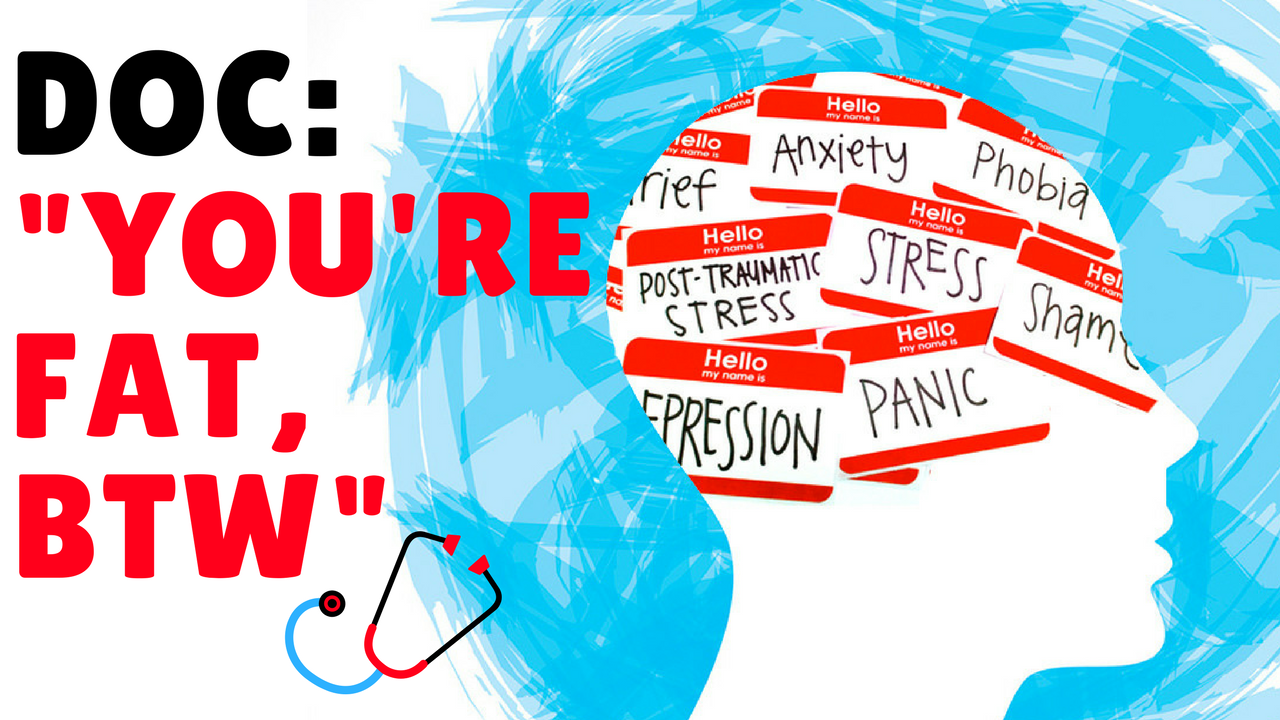
I have never been more than a size 10 throughout the course of my entire life (see below and please omit the classic 2009 side fringe). I hate to be ‘that’ girl, but it’s written in my genetics that – unless something very out of the ordinary happens – I will remain thereabouts in body size for the rest of my life. Since starting NOT PLANT BASED over a year ago, I have become increasingly aware of my unmeasurable privilege, especially when it comes to visiting the Doctor. At many times during my eating disorder treatment I was left frustrated at the reductionist approach of weight-focused recovery. I’d reach a seminal moment such as enjoying an entire cheese pizza, with none of the familiar guilt, or experience an entire week without so much as thinking about food – breakthroughs which were barely acknowledged by my medical professionals. It’s the most deflating, hopeless feeling in the world when you’re told that despite actively dragging yourself through a row of thorns to improve your health, it’s not quite good enough. And at least my body size is deemed socially acceptable.
 As you can see, my ‘biggest ever’ isn’t in the slightest bit big.
As you can see, my ‘biggest ever’ isn’t in the slightest bit big.
I’ve since become both fascinated and disturbed by the body weight-related instructions of medical professionals, and the resulting impact on a patient’s mental health. If the conclusive science tells us that being a little ‘overweight’ alone is most likely not going to have a significant impact on our health, then why is it the presumed cause of a whole host of symptoms; from a dodgy knee to trouble sleeping?
Regardless of whether or not it’s a useful predictor of health, focusing on a person’s weight infers that a person’s wellbeing is determined by the way they look. The intentions may be wholly well-meaning, but there’s no avoiding the fact that once a person’s weight is observed – in any capacity – it’s guaranteed to have a knock-on effect on self esteem. As we know, negative body image, stress, low self confidence and anxiety have been shown in countless studies as risk factors for unhealthy binge eating behaviours and can even increase the chances of significant weight gain. So, by attempting to curb the problem, are doctors just making things worse?

In recent weeks, I’ve noticed somewhat of a trend throughout my health journalism endeavours with regards to a host of extremely clever medics; doctor’s, surgeons, academics e.t.c. There appears to be a rather large disparity between what said medics think is useful (and achievable) for patients; and what patients’ actually find useful – and achievable. Contrary to what some doctors may think, if a person is overweight, they probably know they are overweight and no amount of finger wagging is going to make any difference to their state of health. In fact, it may actually make their mental – and physical – health significantly worse. See below, for example.

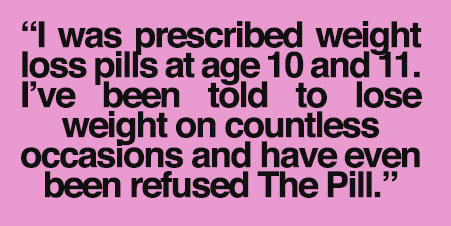
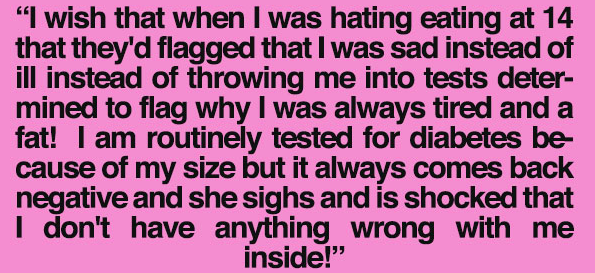
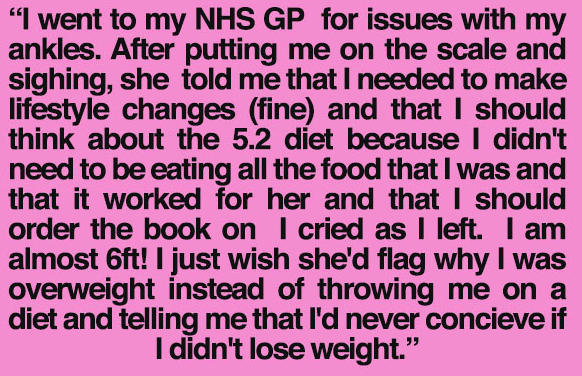

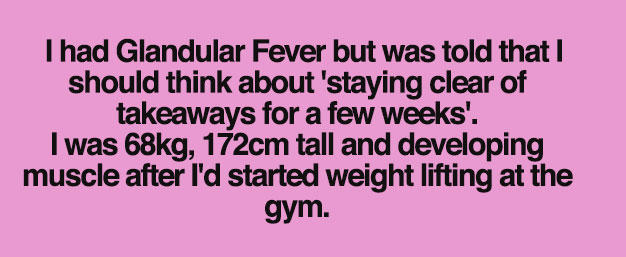
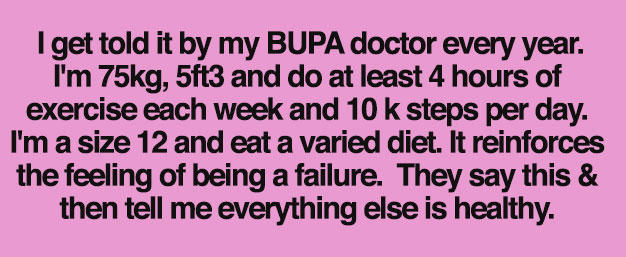

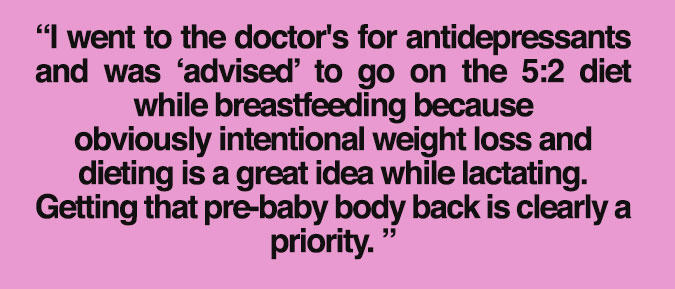
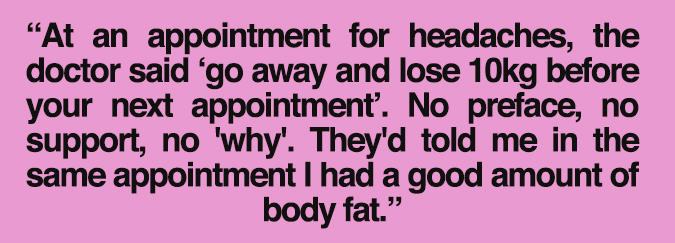
Pretty shocking, right? Please don’t take this post as a GP-bashing. Our NHS doctors (and nurses, surgeons, community workers e.t.c) are wonderful people who do an incredibly stressful and often relentless job and are continuously underpaid and under-supported by our Government. I will always be eternally grateful to some of the selfless NHS staff who took me under their wing with unwavering kindness and ultimately saved my life. Although, in the case of the entirety of my treatment , I place a strong emphasis on the word, ‘some’.
I’m sure that none of the health professionals who offered the above advice intended to cause offence, and were probably just doing as they were told by the powers that be. But, as we know, just because someone holds a position of power, it doesn’t mean they’re correct. Or kind. Or not racist (*Trump*). So doctors, hear my plea: If faced with a patient in front of you who think would benefit from weight loss, first consider if you are really and truly basing your assessment on their overall HEALTH. Next, put yourself in their shoes. How would it feel if you heard to the words you are about to utter? If the answer isn’t self-confident, empowered and motivated to make a positive change, then please…just. don’t. say. it.

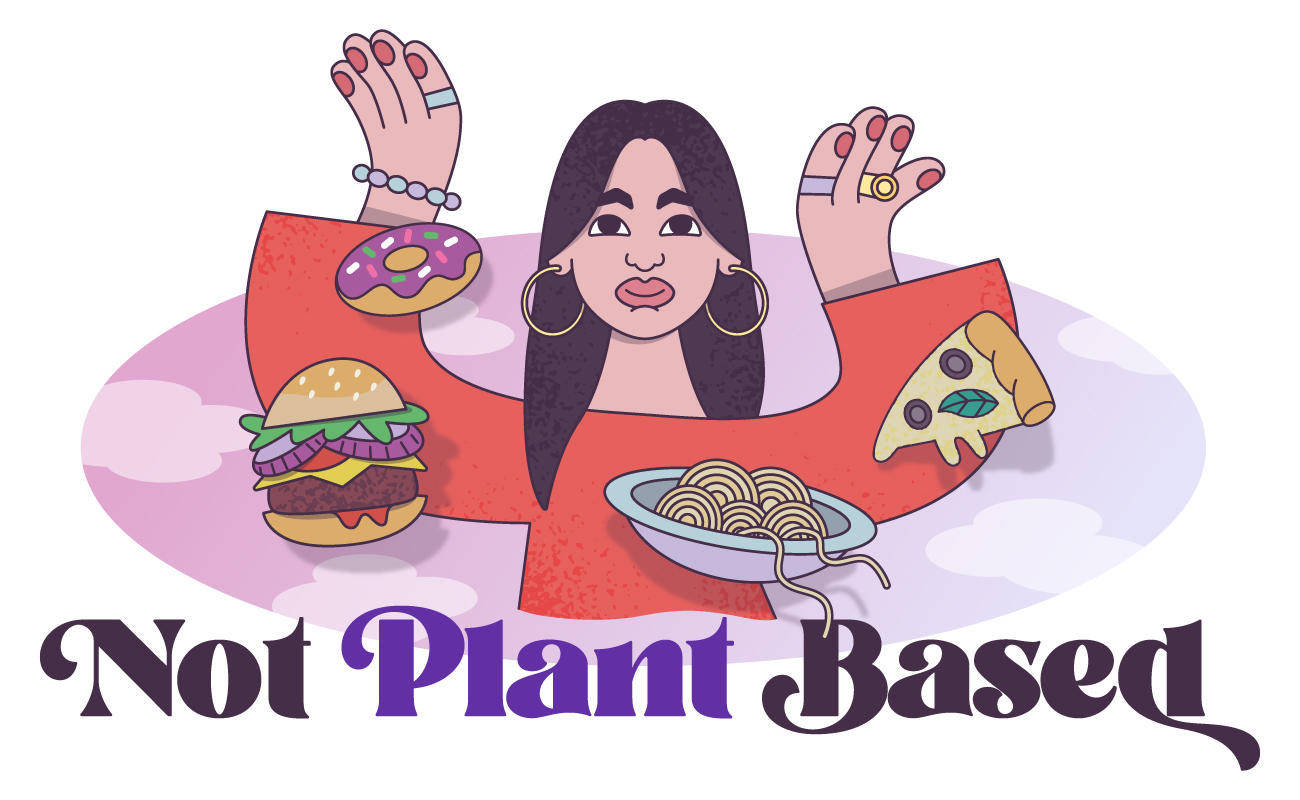


At rhe beginning of my anorexia tratment I was at a very low BMI and was scared of eating a surplus. I feared I would “get used” to the high amount of calories and reach a high “set point”, where cal in=out.
I wore sweatpants that fit me before my anorexia (and now again) at a BMI of 23. One morning during weigh-in, the nurse asked me if these pants used to fit. I told her that yes. She was then flabbergasted at how “big” I used to be. She then contemplated, and continued to ask me what weight I had back then when I used to fit into them. It fueled my fear of reaching my old weight, which people in a fitness forum I used to hang out in had deemed as way to high.